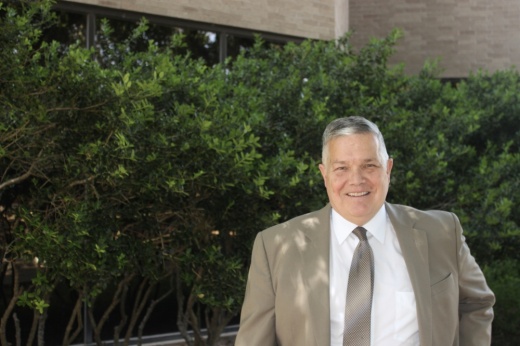The setup
The capital delivery department is tasked with overseeing every stage of neighborhood-level projects like water pipe installation and park improvements, as well as larger infrastructure initiatives, such as major corridor upgrades, Austin's airport expansion and the Project Connect transit system. A map of the city's capital projects may be viewed here.
The new department gathers staff from the city's transportation, public works and finance functions under one roof. In a statement, Garza said he separated capital delivery services as part of his focus on reliably providing civic services.
"To ensure that we are operating cohesively and efficiently, the new Capital Delivery Services Department was created. ... CDS is leading the way with innovative solutions that deliver these projects on-time and on-budget while driving progress in delivering the essential infrastructure our city deserves," Garza said.
The context
CDS is helmed by interim Director James Snow, who spent well over a decade at Austin's former Public Works Department including almost a year as its acting director. Snow first came to the city after time spent working in the private sector.
In a July interview, Snow said the capital delivery change is aimed at breaking down "silos" between various departments while building up confidence in the city's ability to complete public projects—and potentially cutting their timelines in half.
"The current system, because we made it so complex, created delays, cost increases and also a distrust of the council and community of, ‘Can we really deliver projects?’" he said.
Snow said the city's previous format of having individual departments each handle their own project management proved to be too complicated. He said that structure also led to lost opportunities for collaboration and the potential combination of different projects where initiatives overlap, such as roadway and waterline work in the same area.
"When we go through a neighborhood, all [residents] see is the city seal," Snow said. "What we’re trying to do is, let’s do this so that we go and we touch it once, get it done, and then we can leave."
Zooming in
When individual departments are planning their projects, Snow said the change will allow for more focused planning from the design phase to scheduling and budgeting up through construction. Capital planners will also use a new prioritization system to account for various city goals on topics like equity and the environment.
One of the most significant pieces of the department is its Project Connect office. That team is working with entities such as Capital Metro and the Austin Transit Partnership to minimize construction impacts along the planned transit route as design and development move forward.
With the system set to run through Austin's core along many heavily-traveled streets, Snow said the new department is involved to ensure the infrastructure project is laid out efficiently and to hold up for years to come.
"Project Connect is incredible to the city, but if we don’t build it the right way and implement it correctly it could be more disruptive than productive," Snow said. "You’ll spend more money long-term maintaining an asset than you ever do putting it in. So if we don’t do that the right way, we could spend three- or fourfold more money maintaining certain things than we ever could have in terms of designing and putting it in.”
The new department is also responsible for collaborations outside government offices, such as the many contractors brought on for municipal projects and Austinites who are affected by the changes.
Snow said capital delivery staff will work with partner city departments on communication plans to keep the public informed as projects roll out, and to provide updates on progress as construction moves along. Continuing engagement on the department website and social media is also planned.
Additionally, Snow said the new format should build better relationships with the contractors, potentially helping to fill some gaps on the city's end in addition to streamlining projects.
Ali Khataw, president and CEO of the Central Texas firm Encotech Engineering Consultants, said Austin's adjustment demonstrated a "strong commitment" to improving its local partnerships that will benefit the city and its residents.
"This inclusive approach brings together the collective expertise of internal staff, external consultants, contractors and members of the community," Khataw said in an email. "As a result of this unified effort, projects will be benefiting from a diverse range of perspectives and specialized knowledge, leading to the development of higher quality infrastructures and the acceleration of construction timelines."





